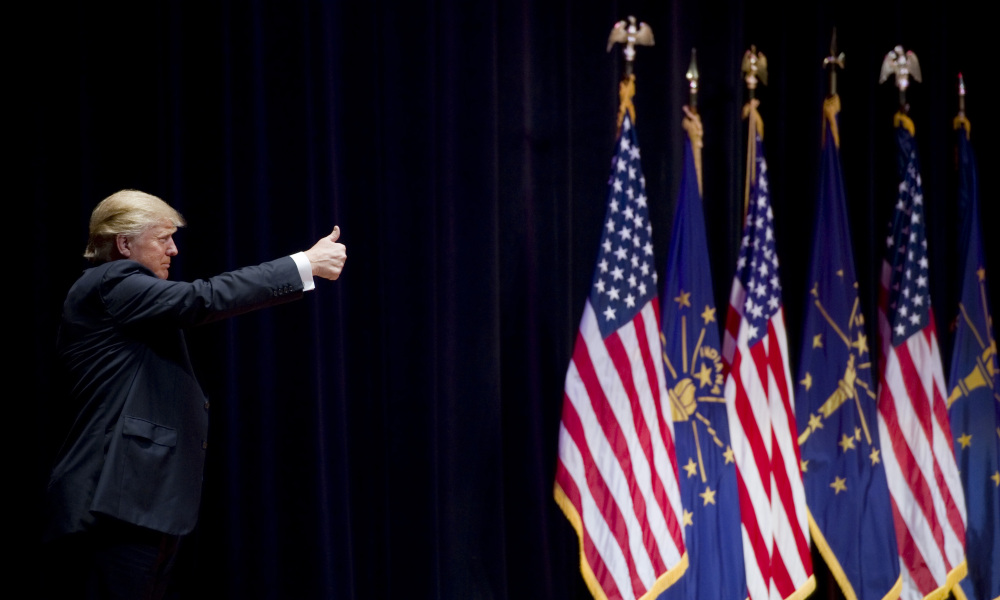Throughout the Republican Party, from New Hampshire to Florida to California, many leaders, operatives, donors and activists arrived this week at the conclusion they had been hoping to thwart or at least delay: Donald Trump will be their presidential nominee.
An aura of inevitability is now forming around the controversial mogul. Trump smothered his opponents in six straight primaries in the Northeast and vacuumed up more delegates than even the most generous predictions foresaw. He is gaining high-profile endorsements by the day – a legendary Indiana basketball coach Wednesday, two House committee chairmen Thursday. And his rivals, Sen. Ted Cruz of Texas and Ohio Gov. John Kasich, are making the kind of rushed tactical moves that signal desperation.
The party is at a turning point. Republican stalwarts opposed to Trump remain fearful of the damage the unconventional and unruly billionaire might inflict on the party’s down-ballot candidates in November. But many also now see him as the all-but-certain nominee and are exhausted by the prospect of a contested July convention, according to interviews this week with more than a dozen party figures from coast to coast.
“People are realizing that he’s the likely nominee,” said Tim Pawlenty, a former Minnesota governor and one-time endorser of Sen. Marco Rubio of Florida. “The hysteria has died down and the range of emotion is from resignation to enthusiasm.”
In Colorado,former state party chairman Dick Wadhams said, “Fatigue is probably the perfect description of what people are feeling.”
He continued, “There is an acceptance, a resignation or whatever, that Trump is going to be the nominee. More and more people hope he wins that nomination on the first ballot because they do not want to see a convention that explodes into total chaos. People just want this to be over with – and we need a nominee.”
With likely Democratic nominee Hillary Clinton pivoting to a general election and her well-funded allies readying for a full-out assault, Republicans are eager to unite quickly. Some are fearful that waiting until the party’s convention in Cleveland to pick a nominee would put the party at a disadvantage in raising money and engaging the Democrats.
“The lion’s share of Republicans want the process settled,” said Mike Dennehy, a veteran New Hampshire-based party strategist. “There’s anxiety setting in about the process, and that’s what people are tired of. They just want it done, they want the fighting to stop, and they want a general election campaign to begin in a meaningful way.”
Send questions/comments to the editors.


